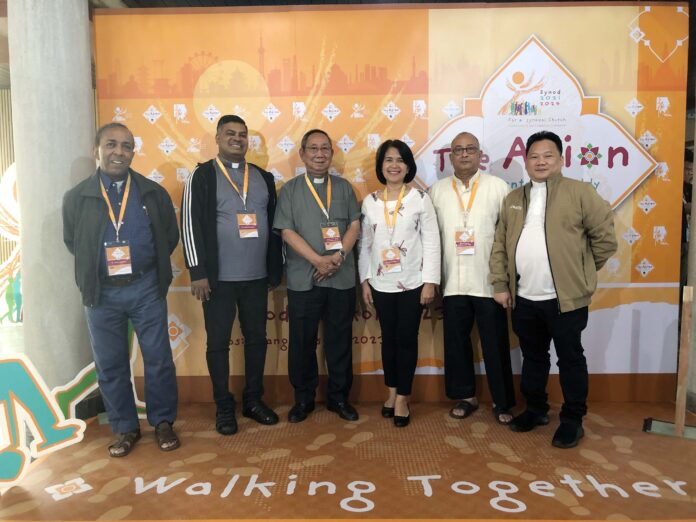Sri Lankan Redemptorist, Fr. Vimal Tirimanna who teaches moral theology in Rome and in Sri Lanka was one of the invited participants at the recently concluded Asian Continental Assembly of the current synodal process. In 2021, he was appointed to the Theological Commission of the current synodal process by the Vatican’s Secretariat for Synods. In September-October 2022, he also served in the Vatican-appointed 20-member group to read the responses from all over the world to the questionnaire on the synodal process at Frascati, Italy, that eventually formulated the Continental Stage Document (CSD). Given below is a brief report he has sent us on the Asian Continental Assembly:
As is well known, the current synodal process has had many stages since Pope Francis inaugurated it in October 2021 in Rome. Each stage of this process is meticulously arranged by the Vatican’s Secretariat for Synods to get all the baptized (the clergy, religious, and laity) involved so that what the Holy Spirit speaks through them could be carefully harnessed. This is because of the cherished traditional Catholic belief that the Holy Spirit speaks through all the baptized. Having carefully read and discerned the responses of the baptized worldwide (at grassroots levels of the Church – in the parishes and other Church communities) to the questionnaire, and then, having collated them into the document called the Continental Stage Document (CDS), right now, the synodal process is at the continental stage during which each of the seven geographical zones (called “continents” in this process) is to read prayerfully the CDS and discern carefully what the Holy Spirit is saying to the Churches in the particular continents.
The Asian continental stage of the synodal process was held from 24th to 26th February 2023 at Samphran, Thailand with an Ecclesial Assembly consisting of delegates from all over Asia – the clergy, religious, and laity. Although the Churches in Asia are used to Episcopal Assemblies, this is the first time (since the early centuries) that an Ecclesial Assembly representing all the People of God was held in Asia. There were some 80 Asian participants from the 29 countries that constitute the FABC (Federation of Asian Bishops’ Conferences). They consisted of all strata of the People of God – 6 Cardinals, 5 Archbishops, 18 Bishops, 28 Priests, 4 Religious Sisters, and 19 Lay Persons (7 men and 12 women). Their main task was to read the CSD in light of the Asian contexts and respond to it. What was most inspiring during the whole Assembly was how after each input and discussion, the delegates were asked to spend time in the chapel to reflect prayerfully on what they had heard. Moreover, the delegates were divided into 12 small groups in which everyone (the clergy, religious, and laity) had the opportunity to share his/her views. At the end of a few interventions within these small groups a 2-minute silence was maintained in order to carefully listen to the Holy Spirit, and then, to reflect and discern what He wishes for our Asian Christian communities today. What was thus discerned prayerfully at the Assembly with the active involvement of all the participants, will now be collated and put together into the Final Asian continental document. It is this particular document (together with those from the other six continents) that will serve the Vatican drafters in preparing the instrumentum laboris or the agenda for the Synod of Bishops in Rome in October 2023. That is to say that the voices representing all the baptized (the People of God) from all over the world have been harnessed in preparing this agenda.
Thus, the current synodal process, as a whole, is an effort to listen to the voice of the Holy Spirit by listening to what the same Spirit says through all the baptized. When (as expected) this synodal process becomes a way of life in all spheres of ecclesial life in the years to come, it will radically change the present way of decision-making in the Church which at the moment is exclusively clergy-dominated. Based on the Acts of the Apostles, hopefully in the future, it will pave the way for an ecclesial culture wherein the clergy, religious, and laity would fully and actively get involved in the running of the Church. This surely will serve as a powerful anti-dote to the rampant clerical scandals and the recent discoveries of the clerical abuse of power in almost all the areas of ecclesial life. Hopefully, then, the Church, the People of God, will walk their pilgrim journey here on earth according to the dictates of the Holy Spirit.
Scala News
(Courtesy: Fr. Vimal Tirimanna)






